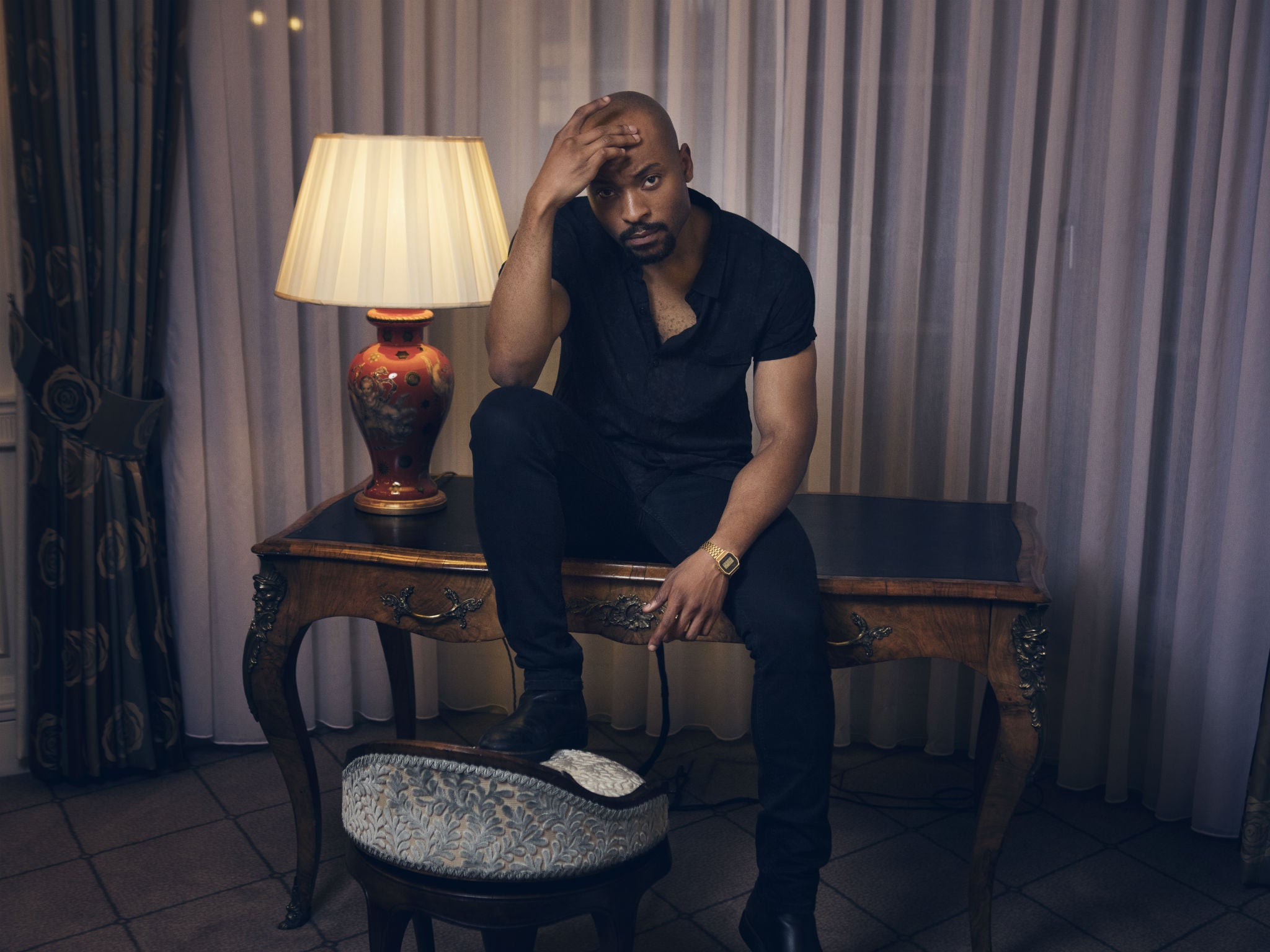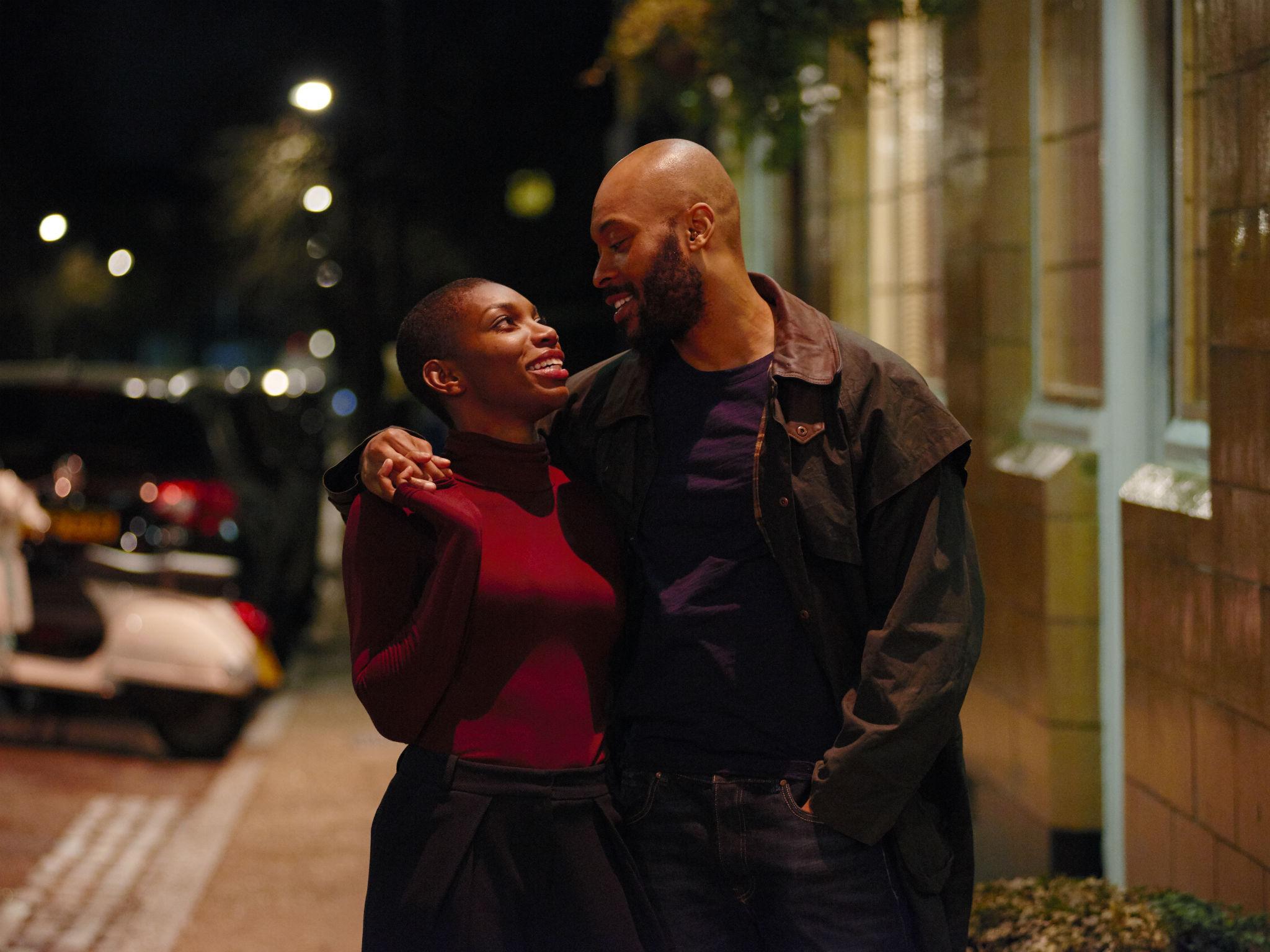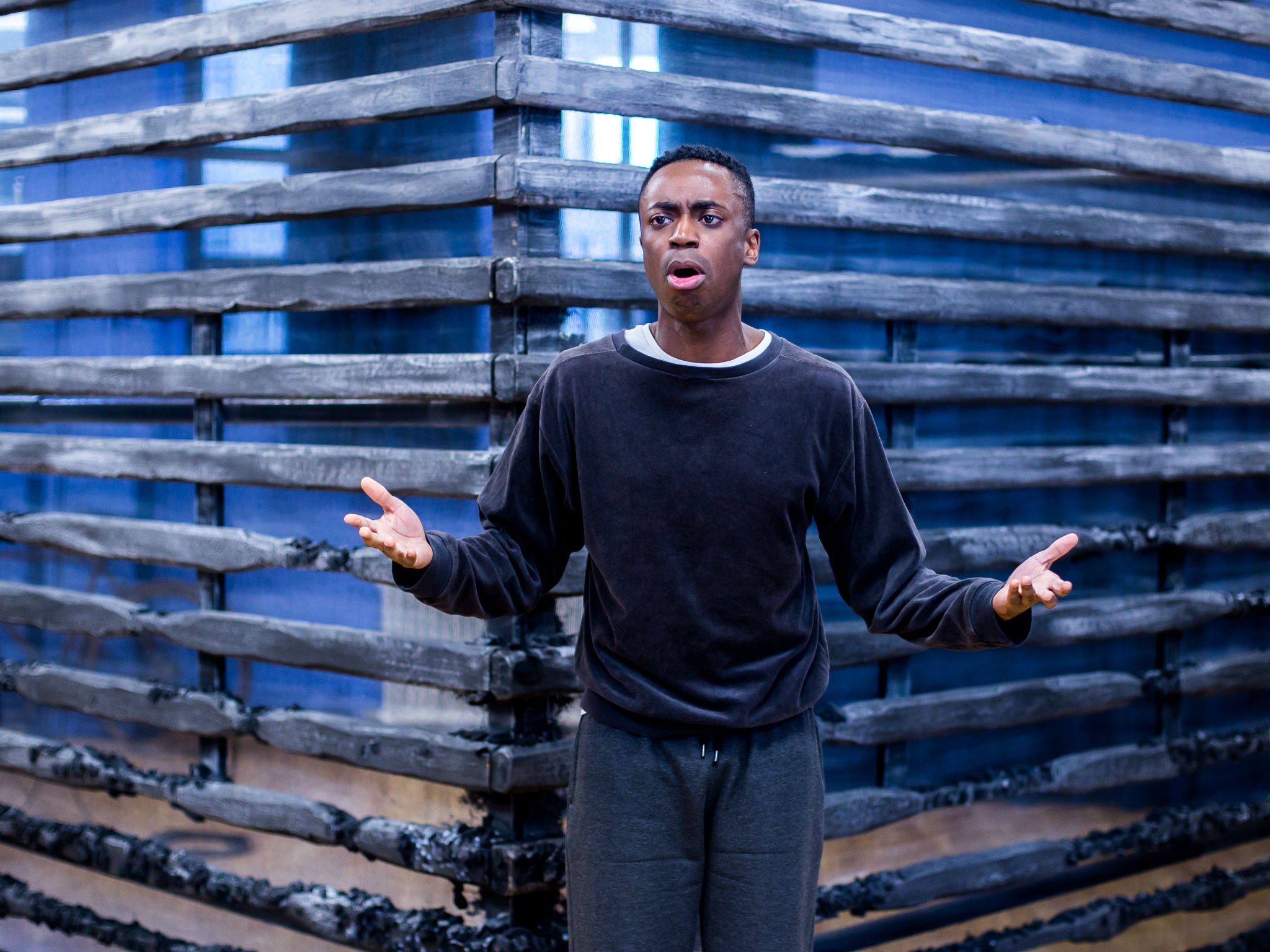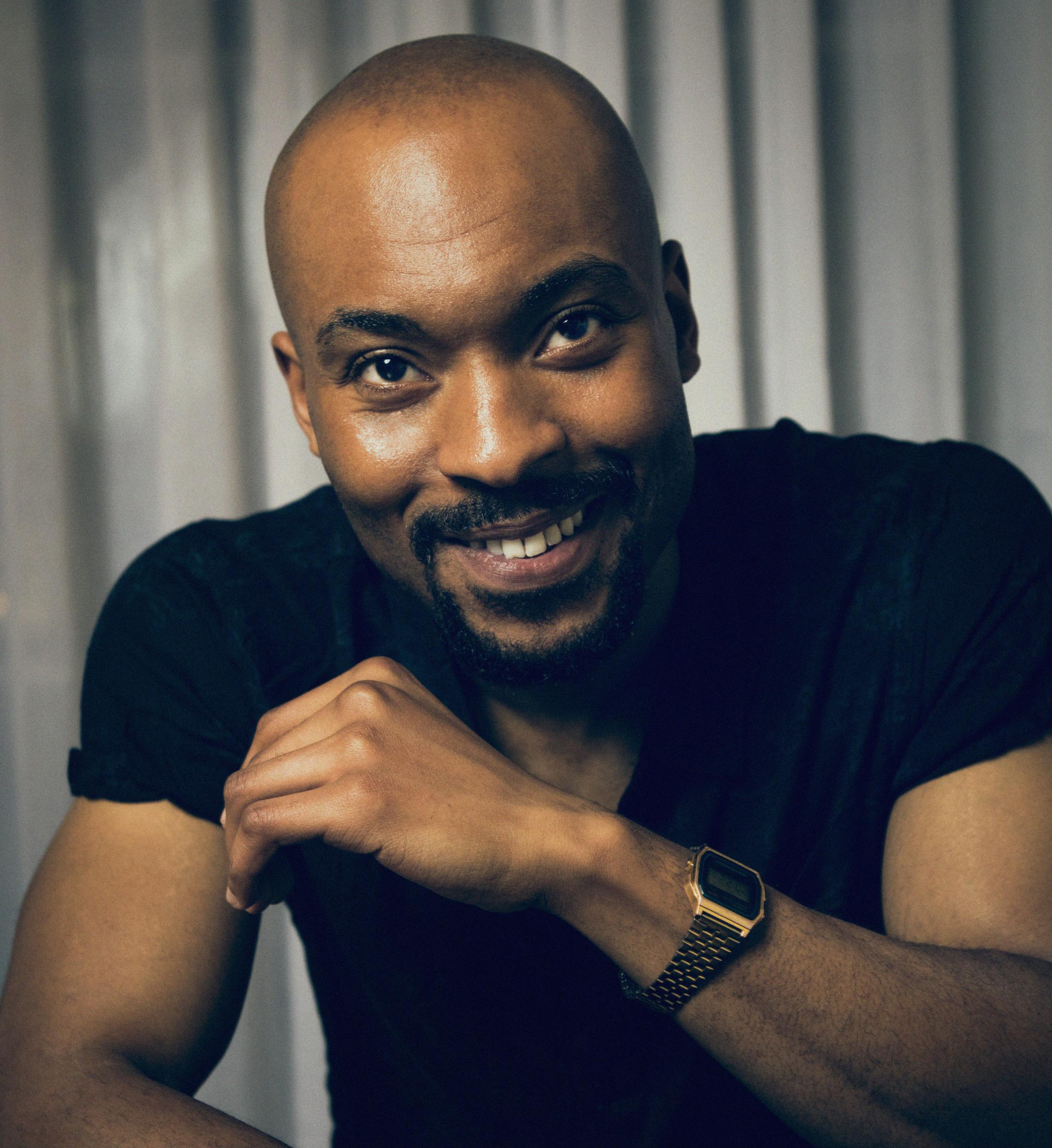‘I’m way more likely to be stopped by police’: Arinzé Kene on writing about the London riots, starring in Arthur Miller and shaking up the West End
The writer and actor talks to Holly Williams about the ‘whitewashing’ of theatre audiences, and why we still need more black leads on stage and screen

Your support helps us to tell the story
From reproductive rights to climate change to Big Tech, The Independent is on the ground when the story is developing. Whether it's investigating the financials of Elon Musk's pro-Trump PAC or producing our latest documentary, 'The A Word', which shines a light on the American women fighting for reproductive rights, we know how important it is to parse out the facts from the messaging.
At such a critical moment in US history, we need reporters on the ground. Your donation allows us to keep sending journalists to speak to both sides of the story.
The Independent is trusted by Americans across the entire political spectrum. And unlike many other quality news outlets, we choose not to lock Americans out of our reporting and analysis with paywalls. We believe quality journalism should be available to everyone, paid for by those who can afford it.
Your support makes all the difference.You might have seen Arinzé Kene around last year. As an actor, he began 2018 on stage in the West End transfer of Girl from the North Country, Conor McPherson’s play featuring the songs of Bob Dylan, before cropping up on the small screen in the BBC’s thriller Informer, and in Netflix’s musical Been So Long opposite Michaela Coel.
But Kene did much more than use those 12 months to fill out his CV: he also wrote and starred in Misty, a piece of gig theatre that became a huge word-of-mouth hit, transferring from the Bush Theatre to Trafalgar Studios. This meant it became only the second play by a black British writer ever to be staged in the West End, following Kwame Kwei-Armah’s Elmina’s Kitchen 15 years ago. That Misty grappled directly with the notion of being a “black play” made its success all the more fist-pumping.
“It was a bit of a shock to me that I was only the second,” Kene remembers. “We have to do better. Let’s share the stage. Let’s allow all kinds of work on. At this minute I’m getting some good opportunities, but I just don’t want to see this momentum ever end.”
This year looks likely to build on it, for Kene at least: this spring, the 31-year-old stars in Marianne Elliott’s production of Arthur Miller’s Death of a Salesman at the Young Vic, where its central characters, the Loman family, are all played by black actors. He’s surely well cast as Biff, the hunky former high school football star who’s somewhat lost his way: not only does Kene do a fine line in wounded masculinity, but he also frankly looks the part, being absolutely ripped (as anyone who saw him with his top off in Misty, or in the gay footballer drama The Pass, will no doubt recall).

But first up, Kene’s play Good Dog head outs on a 15-venue tour. Positively reviewed when it was first staged in 2017, it’s being revived by Tiata Fahodzi, a company dedicated to work examining what it means to be of African heritage in Britain today. Young actor Kwaku Mills performs the monologue, playing a character who keenly observes the lives of those around him; the piece recounts the simmering tensions in a deprived community over the decade before 2011’s summer riots.
“I needed to document how I felt about it,” Kene says. “It was a mad time for me.” He was living in Queen’s Park in west London at the time, but was glued to the TV, watching as Hackney – the east London borough to which he’d emigrated from Nigeria when he was four – went up in flames.
When you think about the riots, you picture a young black male looter, Kene suggests – but he wanted audiences to see the events through the eyes of such a character, to really understand him. “He’s similar to some people I grew up with, and there’s a part of me in there too,” says Kene. “Good Dog is a story about a good boy who basically becomes disillusioned the older he gets, the more he loses his innocence.” In the middle of the noisy bar where we meet, he speaks softly and carefully, leaning forward with his arms on his knees as if to add weight to what he’s saying.

The riots were often spoken about with a degree of bewilderment, but Kene feels he understood where they came from: “The murder – and I do say murder – of Mark Duggan was what set it off, but I don’t believe it was all about Mark,” he says. “I know that I’m way more likely to be stopped by police: I’m young and I’m black and I wear a hat, they’re going to stop me rather than my white contemporary. What that stuff does to a person is not nice, you don’t end up loving the police; you feel targeted. You feel there’s something on your back.”
Have things changed? “I haven’t felt much of a change if I’m completely honest. I just keep writing about it. It’s still relevant, you know.”
Misty presented a rather different version of Hackney: an urban environment infected by gentrification. Kene moved back in 2015, and wanted to write about a young black man living through those changes – the arrival of hipster coffee shops, yoga studios, and attendant rent hikes. But he also wanted to write about his own personal experience of being black in the overwhelmingly white British theatre industry.
“I realised the two subjects worked together: that’s why [Misty] has this double-helix thing.” The play features a fictional character, Lucas, as well as the character of “Arinzé” trying to write his play without falling into tired stereotypes about disaffected black youths.
How did it feel, writing and playing a version of himself? Misty was the first time Kene had performed his own work. It was scary – but the more honest the character became, the better the work felt. “So although I was nervous, by the end I was like OK, cool: this is me exposed, naked. This is my story.”
It paid off. Misty’s success in the West End, Kene hopes, is part of a wave that proves such work can be commercially viable.
“I do see a pattern: Nine Night goes into the West End, Crazy Rich Asians smashing the box office, Black Panther smashing it... So what are you talking about, that black leads can’t sell a film? It’s complete rubbish.”

He thinks casting the family black in Death of a Salesman is brilliant, “especially in today’s climate”. Suddenly, the reason Willy Loman can’t get ahead is to do with race, and the whole family bump up against that glass ceiling.
The discourse about representation is happening across art forms, across continents. “In my 27 years in this country, this is the most we’ve ever talked about it. We’re getting some smoke from America, and we’re getting high off that a little bit,” grins Kene. If his writing enters dark territories – police brutality, racial prejudice – Kene himself is a sunny, easy-going presence.
And he really lights up when discussing his “biggest victory” with Misty: that when he looked out into the audience each night, it actually resembled the London he knew.
“I’ve been going to see plays in the West End for over a decade, regularly, and I’ve never seen audiences that reflect the city that I’ve grown up in. It feels as though there is a whitewashing,” he says. “But we’d have a 60-year-old white lady sat with a 16-year-old black kid next to a 70-year-old rasta.”
It was because the play was marketed in the right way – but was vindicated, too, by a sense of build it and they will come. “The work pulls in the audience. There is a lack of the type of work I make. That’s the reason why audiences often look the way they do, because of years and years and years of people like me not having work on.”
This stuff matters. It was seeing black actors in lead parts that got Kene into theatre as a teenager: Paterson Joseph in The Emperor Jones in 2007, and Nonso Anozie and Kobna Holdbrook-Smith in Death and the King’s Horseman in 2009, both at the National Theatre.
Actually, that isn’t quite the whole truth. The thing that first got Kene into theatre was a sudden downpour of rain.
“I was 14, on my way to basketball, and it just started pissing it down. I jumped into the nearest building which just happened to be the Arcola [theatre in Dalston]. I saw a group of girls...” he breaks off, smiling, eyes twinkling a little. Even if he first got involved in youth theatre because of the girls, it quickly proved transformative.
Without it, not only his career but his own sense of self would be very different. “I went to a school that was wild, crazy – if you were a little bit feminine you’d get the s**t ripped out of you. But I was going to these drama workshops where it didn’t matter. It really helped me become who I am, to be more free,” Kene says. “I’m sure if I didn’t find theatre, I would have felt more pressure to be that traditional man.”
Good Dog is on tour 31 January to 23 March, tiatafahodzi.com; Death of a Salesman is at the Young Vic 1 May to 29 June, youngvic.org
Join our commenting forum
Join thought-provoking conversations, follow other Independent readers and see their replies
Comments